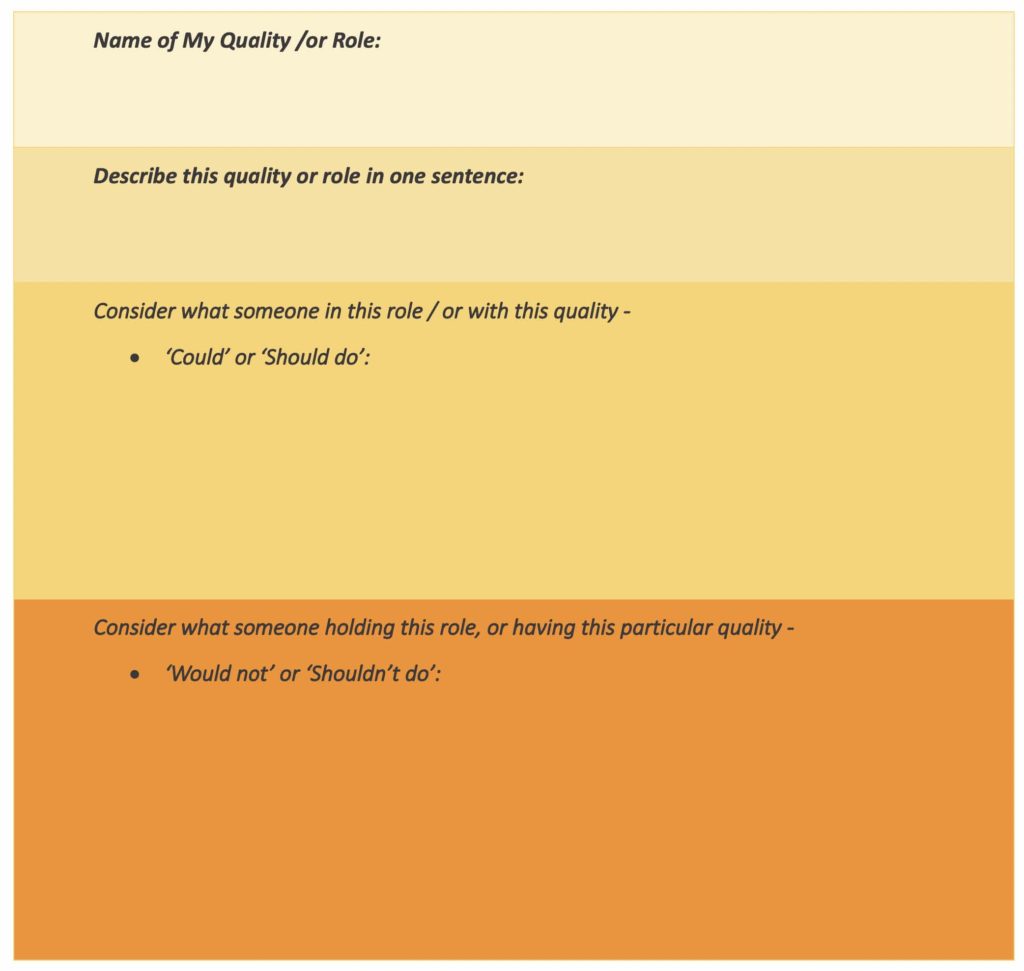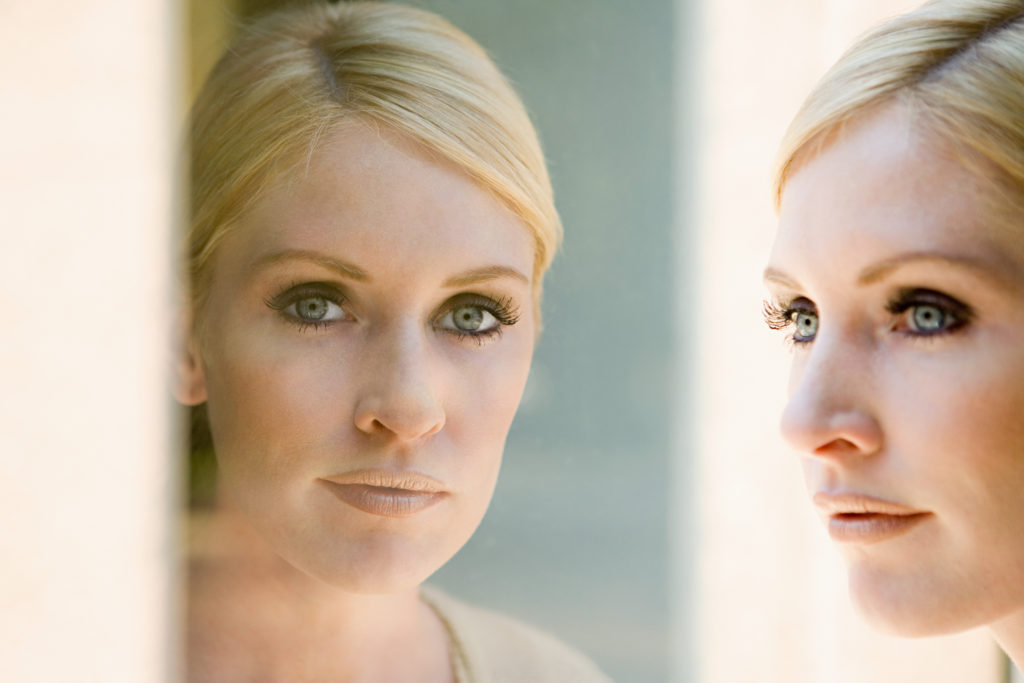Getting to Know You – A Self Awareness Tool
January 26, 2019 | Uncategorized | No Comments
Are you keen to develop your self-awareness, but don’t know where to start. This week’s blog article provides an easy to use self awareness tool to start this process. It also allows for the possibility of making changes to reduce distress and / or increase the quality of your life.

One of the themes of my blog is curiosity and self-awareness. I wrote in a previous post about becoming yourself, referring to becoming the authentic you. I have written previously about the fact that our self-definition is captured in our narrative or story. I mentioned the importance of knowing your story as a way of understanding ourselves and giving ourselves self compassion. That this awareness creates the possibility of making changes.
7 Day Getting to Know You Self Awareness Tool
Day 1
Write down the five most common words you use to describe yourself to others. These might be roles (parent, partner, sibling etc) or qualities (fair, hard working, compassionate, wise etc). Either is fine.
Days 2 – 6
On each day pick one of the qualities or roles.
Write this quality of role it at the top of a blank piece of A4 paper, then complete each of the following steps:
1 – Write down what this quality or role means to you in one sentence.
2 – Write down what someone in this role, or with this quality, ‘can’ or ‘should do’.
3 – Write down what someone with this role, or quality, ‘can’t’ or ‘shouldn’t do’.
Below is an example of the layout of these pages.

Day 7
Find a room where you can have some privacy, and one that has a blank wall or some floor or desk space. Stick these individual A4 sheets on the wall with blue tack, or on the floor or desk in front of you.
Before going forward, take a few moments to ground yourself. A few minutes using slow deep breathing, gently keeping your eyes closed can be useful. If you have something else that you find puts you in the present moment, that removes internal and external distractions, then do this.
Once you are fully present continue.
- Move you attention to each of the individual sheets on the wall or the floor, one at a time. Through this process be curious and do not judge what you wrote.
- Consider how these definitions of you shape how you respond to external events and how you think, feel and act.
- Consider all of the ‘can’ or ‘shoulds’, and how these have benefited you, and where they might have created problems.
- Consider your list of ‘can nots’ and ‘should nots’, and reflect for a moment on whether these limits have been healthy and protective of you, or of they held you back and /or created distress for you.
- Highlight or note down anything that has surprised you and / or resulted in a new awareness.
Examples of exploring roles and qualities
Example 1
This example is from a client I worked with whose first definition was ‘partner’. Her definition was someone who is committed to someone else in a long term relationship, and is supportive and accepting of all parts of that person, and in all situations.
The things she felt a partner ‘should’ or ‘can do’ included being loyal, committed and unconditionally accepting the other person. The things she felt a partner ‘can’t’ or ‘shouldn’t do’ included asking them to change.
Upon reflection she felt that some of these qualities have resulted in her relationship enduring, whilst others have caused her distress and lowered the quality of the relationship. Moving forward she chose to stay in the relationship but challenge her partner it in ways that caused some discomfort, but resulted in more of her needs being met. Her willingness to drop the ‘should’ about unconditionally accepting her partner allowed this to happen.
Example 2
This example is taken from another client who prided himself on being ‘fair’. His definition of being fair was to treat everyone equally and have the same expectations of others as he had of himself.
The things he felt that someone who was fair ‘should do’ was to rigidly hold expectations of others, while expecting and demanding fair treatment from others.
The things he felt someone who is fair ‘shouldn’t do’ included allowing differential treatment and / or support of those who do not comply with the standard process or procedure.
Upon reflection he felt this quality had contributed to his positive self-image and he felt other’s acceptance and liking of him. But he found it had also caused him significant anger and resentment as there had been situations where fairness had not prevailed and he found this almost impossible to accept. To reduce this anger and resentment he needed to lower his expectation of others behaving fairly, and consider that going outside the system could be ok. He felt uncomfortable doing this at times, but did find it reduced his feelings of anger.
In Finishing
It is important to be aware of the implications of how we define ourselves. Each of these roles or qualities can potentially support us. Conversely, they may unwittingly sabotage us. If we can flexibly and selectively apply these roles and qualities, or even the elements of them, we can make choices and changes that increase our quality of life and achieve better outcomes for ourselves and the people around us.
If you had the time to do this exercise, thank you. As always, shares are appreciated. As are comments on Facebook or the blog article on whether you found this useful, or anything that came up for you.
Enjoy and take care
Scott







 Christmas can be a wonderful time of year full of gratitude, love and connection. For those with a Christian faith it also has a deep spiritual meaning.
Christmas can be a wonderful time of year full of gratitude, love and connection. For those with a Christian faith it also has a deep spiritual meaning. I wrote in a previous article about the idea that multiple
I wrote in a previous article about the idea that multiple  Before launching into this subject further, I do acknowledge that there is malicious feedback which is designed to hurt us and is never acceptable. I differentiate this from feedback from people who have our best interests in mind, at least some of the time, such as partners, family, good friends, work colleagues and managers. From observing us they can offer us insight about ourselves that we might never see..
Before launching into this subject further, I do acknowledge that there is malicious feedback which is designed to hurt us and is never acceptable. I differentiate this from feedback from people who have our best interests in mind, at least some of the time, such as partners, family, good friends, work colleagues and managers. From observing us they can offer us insight about ourselves that we might never see..